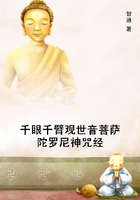The explanation here given of the custom of killing divine persons assumes, or at least is readily combined with, the idea that the soul of the slain divinity is transmitted to his successor. Of this transmission I have no direct proof except in the case of the Shilluk, among whom the practice of killing the divine king prevails in a typical form, and with whom it is a fundamental article of faith that the soul of the divine founder of the dynasty is immanent in every one of his slain successors. But if this is the only actual example of such a belief which I can adduce, analogy seems to render it probable that a similar succession to the soul of the slain god has been supposed to take place in other instances, though direct evidence of it is wanting. For it has been already shown that the soul of the incarnate deity is often supposed to transmigrate at death into another incarnation; and if this takes place when the death is a natural one, there seems no reason why it should not take place when the death has been brought about by violence.
Certainly the idea that the soul of a dying person may be transmitted to his successor is perfectly familiar to primitive peoples. In Nias the eldest son usually succeeds his father in the chieftainship. But if from any bodily or mental defect the eldest son is disqualified for ruling, the father determines in his lifetime which of his sons shall succeed him. In order, however, to establish his right of succession, it is necessary that the son upon whom his father's choice falls shall catch in his mouth or in a bag the last breath, and with it the soul, of the dying chief. For whoever catches his last breath is chief equally with the appointed successor. Hence the other brothers, and sometimes also strangers, crowd round the dying man to catch his soul as it passes. The houses in Nias are raised above the ground on posts, and it has happened that when the dying man lay with his face on the floor, one of the candidates has bored a hole in the floor and sucked in the chief's last breath through a bamboo tube. When the chief has no son, his soul is caught in a bag, which is fastened to an image made to represent the deceased; the soul is then believed to pass into the image.
Sometimes it would appear that the spiritual link between a king and the souls of his predecessors is formed by the possession of some part of their persons. In southern Celebes the regalia often consist of corporeal portions of deceased rajahs, which are treasured as sacred relics and confer the right to the throne. Similarly among the Sakalavas of southern Madagascar a vertebra of the neck, a nail, and a lock of hair of a deceased king are placed in a crocodile's tooth and carefully kept along with the similar relics of his predecessors in a house set apart for the purpose. The possession of these relics constitutes the right to the throne. A legitimate heir who should be deprived of them would lose all his authority over the people, and on the contrary a usurper who should make himself master of the relics would be acknowledged king without dispute. When the Alake or king of Abeokuta in West Africa dies, the principal men decapitate his body, and placing the head in a large earthen vessel deliver it to the new sovereign; it becomes his fetish and he is bound to pay it honours. Sometimes, in order apparently that the new sovereign may inherit more surely the magical and other virtues of the royal line, he is required to eat a piece of his dead predecessor. Thus at Abeokuta not only was the head of the late king presented to his successor, but the tongue was cut out and given him to eat. Hence, when the natives wish to signify that the sovereign reigns, they say, He has eaten the king. A custom of the same sort is still practised at Ibadan, a large town in the interior of Lagos, West Africa. When the king dies his head is cut off and sent to his nominal suzerain, the Alafin of Oyo, the paramount king of Yoruba land; but his heart is eaten by his successor. This ceremony was performed not very many years ago at the accession of a new king of Ibadan.
Taking the whole of the preceding evidence into account, we may fairly suppose that when the divine king or priest is put to death his spirit is believed to pass into his successor. In point of fact, among the Shilluk of the White Nile, who regularly kill their divine kings, every king on his accession has to perform a ceremony which appears designed to convey to him the same sacred and worshipful spirit which animated all his predecessors, one after the other, on the throne.















